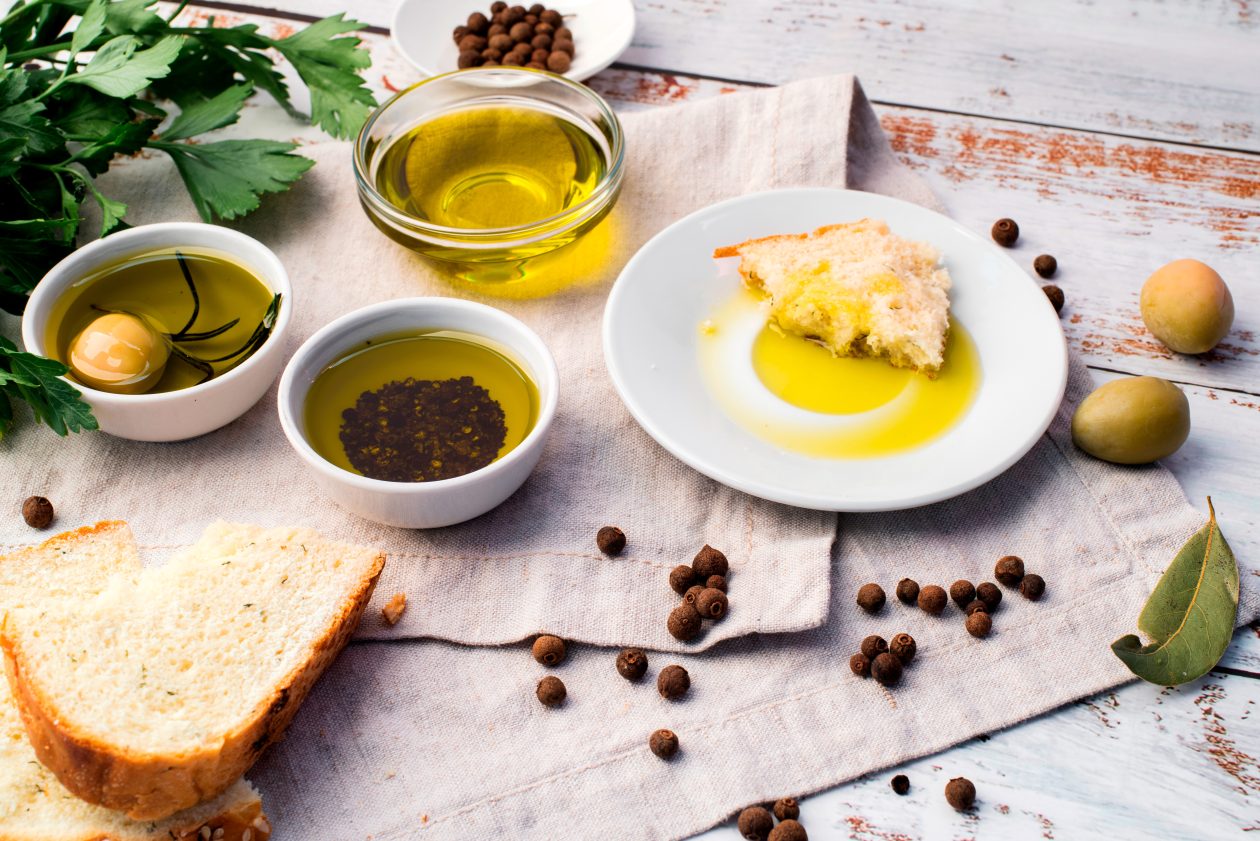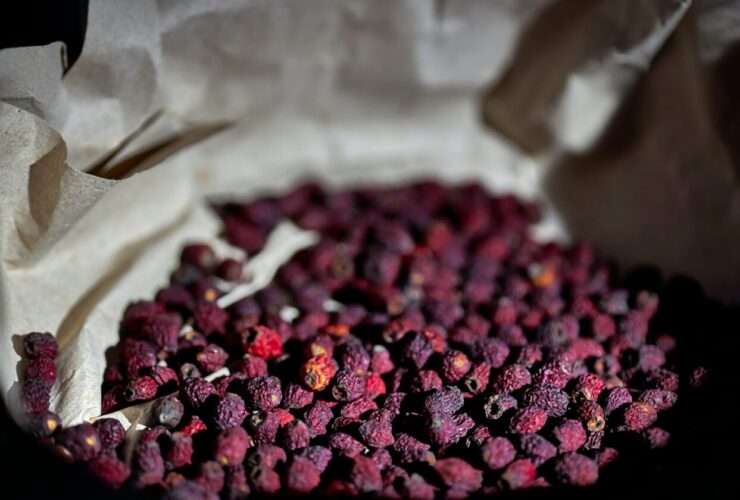Introduction
Olive oil is a widely recognized and adaptable product in the culinary world, thanks to its rich flavor and extensive application in cooking. From drizzling over salads to sautéing vegetables, its applications are diverse, contributing not only to taste but also to the health-conscious choices of many. On the other end of the range is the ketogenic diet, which follows a high-fat, low-carb strategy. The potential advantages of this diet, such as weight loss and greater vitality, have made it more well-liked. The crucial query that emerges as we traverse the relationship between olive oil and the ketogenic diet is, Is olive oil keto friendly?
We must investigate the dietary factors to investigate this question further. Not only is olive oil, especially extra virgin olive oil, a flavor enhancer, but it also contains antioxidants that fight disease, anti-inflammatory compounds like oleic acid, and polyphenols that may lower the risk of cancer. Olive oil’s low saturated fat and high monounsaturated fat content make it a natural fit for the ketogenic diet when considering how well it works with this way of living. This means it’s not just a tasty option but also advantageous for people following a ketogenic diet.
From a practical standpoint, there are a few different ways to include olive oil in a ketogenic diet. Several alternatives range from sautéing meats and vegetables to making handmade salad dressings. It can also add some flavor to sweets and sides that are keto-friendly. But important things to remember when using olive oil are its quality, amount, and storage. For those following a ketogenic diet, choosing extra virgin olive oil, keeping it in a dark, cold place, and being aware of its calorie density are crucial. As we cross this culinary terrain, let’s examine the complex relationship between olive oil and the ketogenic diet, offering advice and helpful hints for a knowledgeable trip.
Understanding the Ketogenic Diet
The goal of the ketogenic diet, also called the keto diet, is to create the metabolic state of ketosis through food. When the body enters ketosis, it starts using fats instead of carbs as its main fuel source, which causes the body to produce ketones. The body and brain subsequently employ these ketones as an energy source. Consuming large quantities of heart-healthy fats, moderate protein, and little carbs is the standard ketogenic diet. The body is compelled to burn fat for fuel when carbs are substantially reduced, which may positively affect blood sugar regulation, mental clarity, and weight loss.
A key component of the ketogenic diet is adjusting macronutrient ratios to induce and sustain ketosis. About 70–75% of daily calories on a conventional ketogenic diet come from fat, 25–25% from protein, and only 5–10% from carbohydrates. By maintaining low insulin levels, this high-fat, low-carb strategy encourages the body to burn fat reserves rather than glucose produced from carbohydrates for energy. Achieving the ideal balance between these macronutrients is essential for maintaining ketosis while satisfying dietary requirements and individual preferences.
Choosing fats that are low in carbohydrates and high in healthy fats is crucial when on a ketogenic diet. Olive oil is a superior option because of its high monounsaturated fat content and low carbohydrate level. Extra virgin olive oil has anti-inflammatory and strong antioxidant qualities, among other advantages. Using olive oil in keto-friendly recipes—like marinades, salad dressings, and cooking oils—allows people to follow the ketogenic diet guidelines without sacrificing their fat consumption. To guarantee overall nutritional diversity and balance, it’s imperative to include other healthy fats like avocados, nuts, seeds, and fatty seafood.
Health Benefits of Olive Oil

Due to its heart-healthy monounsaturated fats and high antioxidant content, olive oil is a mainstay of many health-conscious diets, including the ketogenic diet. Antioxidants like vitamin E and phenolic compounds in olive oil can counter oxidative stress and inflammation within the body. Its high concentration of monounsaturated fats, especially oleic acid, has also been connected to several health advantages, such as lowered risk factors for chronic illnesses and enhanced heart health.
According to research, eating a diet high in olive oil may help lower the incidence of type 2 diabetes, strokes, and cardiovascular illnesses. Improved heart health can be facilitated by the monounsaturated fats in olive oil, which can help raise HDL (the “good”) cholesterol while lowering LDL (the “bad”) cholesterol. Additionally, olive oil has been linked to better blood sugar regulation and insulin sensitivity, essential for preventing and treating type 2 diabetes.
Olive oil’s anti-inflammatory qualities may help prevent and treat several inflammatory diseases, such as rheumatoid arthritis and Alzheimer’s disease, in addition to its cardiovascular advantages. Olive oil’s polyphenols have been demonstrated to alter the body’s inflammatory pathways, which may lessen inflammation and its accompanying symptoms. Even though further studies are required to completely comprehend the scope of olive oil’s medicinal effects, including it in a balanced diet can improve general health and lengthen life.
Assessing Olive Oil’s Keto Compatibility

A. Is Olive Oil Keto Friendly?
Yes, olive oil is indeed keto-friendly. It aligns well with the ketogenic diet principles, emphasizing consuming foods low in carbohydrates and high in healthy fats. Olive oil, known for its rich monounsaturated fat content and minimal carbohydrates, is an excellent energy source for individuals following a keto lifestyle.
B. Nutritional Composition Analysis
Olive oil boasts a nutritional profile that is conducive to the keto diet. It is low in saturated fats and abundant in heart-healthy monounsaturated fats. These monounsaturated fats, particularly oleic acid, have been linked to various health benefits, including improved cardiovascular health and reduced inflammation. Moreover, olive oil contains negligible carbohydrates, making it an ideal choice for maintaining ketosis.
C. Favorable Fatty Acid Profile
The fatty acid composition of olive oil makes it highly compatible with the ketogenic diet. With a predominant presence of monounsaturated fats and minimal saturated fats, olive oil helps maintain ketosis by providing a steady source of healthy fats without significantly impacting blood sugar levels. Its moderate protein content complements the macronutrient ratios recommended for a successful ketogenic diet.
D. Benefits of Extra-Virgin Olive Oil
Extra-virgin olive oil, in particular, offers additional health benefits that make it a preferred option for keto enthusiasts. Unlike refined oils, extra-virgin olive oil undergoes minimal processing, retaining a higher concentration of phenolic compounds and antioxidants. These antioxidants, including tocopherols and polyphenols, contribute to its anti-inflammatory properties and may offer protective effects against chronic diseases, making it a valuable addition to a ketogenic lifestyle.
Practical Tips for Using Olive Oil on a Keto Diet

Olive oil is a flexible ingredient used in various culinary applications while cooking keto. To add rich flavor to savory foods while reducing the amount of carbohydrates in the meal, try using it to sear meats or sauté veggies. Furthermore, olive oil works great as a foundation for homemade salad dressings, adding a healthy fat component to go well with leafy greens and other vegetables that fit the ketogenic diet. Olive oil can be drizzled over cooked food to improve flavor and texture while maintaining the ketogenic macronutrient ratios.
Olive oil is special since it can be used in savory and sweet recipes without conflicting with other ingredients. Olive oil is usually considered a flavor enhancer for savory foods like grilled meats or roasted vegetables, but it can also improve the taste of keto-friendly desserts. Add olive oil to recipes for keto-friendly muffins or almond flour olive oil cake to add a hint of fruitiness and a moist texture without breaking ketosis.
Olive oil is a standout source of good fats when making ketogenic meals. Its high monounsaturated fat concentration fits the macronutrient distribution suggested for ketogenic diets. Prioritize using olive oil as the primary fat source when starting a ketogenic culinary journey to maintain ketosis. Olive oil is a trusted ally in creating tasty and fulfilling meals that follow the guidelines of the ketogenic lifestyle, whether you’re baking, frying, or just putting a final touch on your food.
Enhancing Olive Oil’s Flavor Profile
While following a ketogenic diet, there are techniques to improve the flavor of olive oil and the whole culinary experience. Herbs such as basil, thyme, or rosemary infuse olive oil to create complex flavors that give food more flavor without adding extra carbs. Similarly, adding dried chili flakes or citrus zest to olive oil can provide a spicy or zesty infusion that increases the adaptability of this keto-friendly fat source.
Adding olive oil to your meals and other keto-friendly oils will enhance their flavor even more. Avocado or walnut oils can add complimentary flavors and textures to olive oil, which stands out for its fruity and peppery overtones. Creating a more dynamic cooking experience by experimenting with different oil mixtures allows you to maintain ketosis while satisfying specific taste preferences.
Flavored olive oil is a practical way to improve food without straying from the ketogenic diet. Flavored olive oils, whether they are infused with garlic, chile, or truffle essence, provide a plethora of possibilities to enhance meals that are keto-friendly. For those looking to maximize taste and nutritional value in their ketogenic journey, these artisanal oils offer a rush of flavor that may turn basic recipes into gourmet pleasures.
FAQ about Olive Oil and Keto
Q: Is olive oil high in carbs?
A: Olive oil is extremely low in carbohydrates, making it an ideal choice for those following a ketogenic diet. With less than 1 gram of carbohydrates per tablespoon, olive oil provides a rich source of healthy fats without compromising ketosis.
Q: Is butter OK on keto?
A: Yes, butter is considered a keto-friendly fat due to its high concentration of saturated fats and low carbohydrate content. It’s commonly used in ketogenic cooking and baking as a flavorful energy source.
Q: Is butter and olive oil keto-friendly?
A: Both butter and olive oil are staples in the ketogenic diet due to their high-fat content and minimal carbohydrates. They provide essential fatty acids and can be used interchangeably in cooking and meal preparation to support ketosis.
Q: Which fat is best for keto?
A: The best fats for a ketogenic diet are those high in healthy saturated and monounsaturated fats, such as coconut oil, olive oil, avocados, nuts, and seeds. These fats provide a sustainable source of energy while helping to maintain ketosis.
Q: Why is olive oil not keto?
A: Olive oil is considered keto-friendly due to its low carbohydrate content and high concentration of monounsaturated fats. It’s a staple in many ketogenic recipes and is widely used to support fat intake on the diet.
Q: Is salt OK for keto?
A: Salt is perfectly fine to consume on a ketogenic diet. Ensuring an adequate sodium intake can help prevent electrolyte imbalances often associated with the initial stages of ketosis.
Q: Can you reach ketosis without eating fat?
A: While protein and carbohydrates can impact ketosis, dietary fat is the primary macronutrient that drives ketone production. Consuming sufficient fat is essential for entering and maintaining a state of ketosis on a ketogenic diet.
Q: Is Honey good for keto?
A: Honey is unsuitable for a ketogenic diet due to its high sugar content. It contains significant amounts of carbohydrates, disrupting ketosis and hindering fat-burning processes.
Q: Does olive oil spike sugar?
A: Olive oil does not spike blood sugar levels as it contains negligible carbohydrates. It’s a stable source of healthy fats that can be consumed without causing significant fluctuations in blood sugar.
Q: Is milk OK for the keto diet?
A: While milk contains carbohydrates in the form of lactose, some individuals following a ketogenic diet may incorporate small amounts of full-fat dairy into their meal plans. However, monitoring portion sizes is essential to avoid exceeding daily carbohydrate limits.
Q: How do I eat more fat on keto?
A: To increase fat intake on a ketogenic diet, incorporate sources such as avocados, nuts, seeds, fatty fish, oils, and full-fat dairy products into your meals and snacks. Cooking with oils like olive oil and adding nuts and seeds to salads and snacks effectively boost fat consumption.
Q: Is two tablespoons of olive oil a day too much?
A: Two tablespoons of olive oil provide approximately 28 grams of fat, which is reasonable to include in a daily ketogenic diet. However, individual needs may vary based on activity level, metabolic rate, and overall calorie intake.
Q: Can I eat onions on keto?
A: Onions can be consumed in moderation on a ketogenic diet, as they contain some carbohydrates. However, it’s essential to account for the carbohydrate content of onions within your daily carb limit to maintain ketosis.
Q: Is Tomato keto-Friendly?
A: Tomatoes are relatively low in carbohydrates and can be included in moderation on a ketogenic diet. However, be mindful of portion sizes and factor in the carbohydrate content of tomatoes when planning your meals to stay within your daily carb limit.
Conclusion
In conclusion, olive oil proves to be a useful and adaptable supplement to the ketogenic diet. It is an important part of a ketogenic diet because of its many health advantages, which include heart-healthy monounsaturated fats and a high antioxidant content. Olive oil fits nicely with the keto diet’s tenets because of its high monounsaturated fat and low carbohydrate content. This makes it a good option for people who want to eat tasty food and stay in ketosis. As a result, people on a ketogenic diet are advised to use olive oil as a mainstay in their cooking and meal preparation, using its nutritional benefits and gastronomic adaptability to improve their entire dietary experience.
Reference
Xia, M., Zhong, Y., Peng, Y., & Qian, C. (2022). Olive oil consumption and risk of cardiovascular disease and all-cause mortality: A meta-analysis of prospective cohort studies. Frontiers in Nutrition, 9. https://doi.org/10.3389/fnut.2022.1041203
Guasch-Ferré, M., Hruby, A., Salas-Salvadó, J., Martínez-González, M. A., Sun, Q., Willett, W. C., & Hu, F. B. (2015). Olive oil consumption and risk of type 2 diabetes in US women. The American Journal of Clinical Nutrition, 102(2), 479-486. https://doi.org/10.3945/ajcn.115.112029
(1)U.S. DEPARTMENT OF AGRICULTURE – Oil, olive, salad or cooking
https://fdc.nal.usda.gov/fdc-app.html#/food-details/171413/nutrients
(2) Can olive oil lower cholesterol? – Medical News Today
https://www.medicalnewstoday.com/articles/does-olive-oil-lower-cholesterol
(3) 11 Proven Benefits of Olive Oil – Healthline
https://www.healthline.com/nutrition/11-proven-benefits-of-olive-oil
(4) Olive Oil for Weight Loss: Is It Beneficial? – Healthline
https://www.healthline.com/nutrition/olive-oil-for-weight-loss
(5) Olive Oil Is the Next Weight Loss EVOOlution – Greatist
https://greatist.com/health/olive-oil-for-weight-loss
(6) The Benefits of 1 to 2 Tablespoons Olive Oil Per Day
https://healthyeating.sfgate.com/benefits-1-2-tablespoons-olive-oil-per-day-9046.html
(7) MCT Oil 101: A Review of Medium-Chain Triglycerides
https://www.healthline.com/nutrition/mct-oil-101
Was this helpful?

Joseph Emb, RDN
Founder of StyleVitally.com | Registered Dietitian & Wellness Advocate
What I Cover:
I’m passionate about connecting nutrition science and everyday wellness to help people live healthier, more vibrant lives. I write about evidence-based nutrition, mindful eating, sustainable lifestyles, and holistic well-being at StyleVitally.com.
My Background:
The University of Texas in Austin, where I earned my Dietetics diploma, laid the groundwork for my nutrition and health career. My training and hands-on experience taught me the science and art of using nutrition to enhance health and well-being.
Professional Journey:
I’m an RDN with lots of experience. I’ve helped people seeking tailored nutritional recommendations in clinical settings and community outreach programs. My constant learning and professional development ensure that my recommendations are always based on the latest evidence.
Ethical Commitment:
My practice prioritizes integrity. My content is transparent and objective, following the most significant ethical standards. I can give my audience unbiased advice because I’m not affiliated with food businesses or industry associations. I want to help people make informed health decisions that match their values and ambitions.
Join Me on the Wellness Journey:
Join me on the path to vitality and well-being, whether facing nutritional issues, seeking sustainable lifestyle changes, or simply wanting a better, happier you. We’ll discover how diet, mindfulness, and holistic well-being can maximize your potential.









